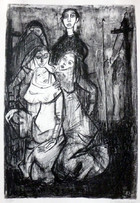The Crucifixion
(Matthew 27:33-40, 44-50, NIV; Luke 23: 33-37, 39-48, KJV; John 19:16-20,23-29, NAB)
They came to a place called Golgotha (which means The Place of the Skull). There they offered him wine to drink, mixed with gall; but after tasting it, he refused to drink it.
When they had crucified him, they divided up his clothes by casting lots. And sitting down, they kept watch over him there. Above his head they placed the written charge against him: THIS IS JESUS, THE KING OF THE JEWS.
Two robbers were crucified with him, one on his right and one on his left. Those who passed by hurled insults at him, shaking their heads and saying, “You who are going to destroy the temple and build it in three days, save yourself! Come down from the cross, if you are the Son of God!” In the same way the robbers who were crucified with him also heaped insults on him.
From the sixth hour until the ninth hour darkness came over all the land. About the ninth hour Jesus cried out in a loud voice, “Eloi, Eloi, lama sabachthani?”--which means. “My God, My God, why have you forsaken me?”
When some of those standing there heard this, they said, “He is calling Elijah.” Immediately one of them ran and got a sponge. He filled in with wine vinegar, put it on a stick, and offered it to Jesus to drink.
But the rest said, “Leave him alone. Let’s see if Elijah comes to save him.”
And when Jesus had cried out again in a loud voice, he gave up his spirit.
And when they were come to the place, which is called Calvary, there they crucified him, and the malefactors, one on the right hand, and the other on the left.
Then said Jesus, Father forgive them; for they know not what they do.
And they parted his raiment and cast lots. And the people stood beholding. And the rulers also with them derided him, saying, He saved others; let him save himself, if he be Christ, the chosen of God.
And the soldiers also mocked him, coming to him, and offering him vinegar, and saying, If thou be the king of the Jews, save thyself.
And one of the malefactors which were hanged railed on him, saying, If thou be Christ, save thyself and us.
But the other answering rebuked him, saying, Dost not thou fear God, seeing thou art in the same condemnation? And we indeed justly; for we receive the due reward of our deeds: but this man hath done nothing amiss.
And he said unto Jesus, Lord, remember me when thou comest into thy kingdom.
And Jesus said unto him, Verily I say unto thee, To-day shalt thou be with me in paradise.
And it was about the sixth hour, and there was darkness over all the earth until the ninth hour. And the sun was darkened, and the veil of the temple was rent in the midst.
And when Jesus had cried with a loud voice, he said, Father, into thy hands I commend my spirit: and having said thus, he gave up the ghost.
Now when the centurion saw what was done, he glorified God, saying, Certainly, this was a righteous man.
And all the people that came together to that sight, beholding the things which were done, smote their breasts, and returned.
So they took Jesus, and carrying the cross himself he went out to what is called the Place of the Skull, in Hebrew, Golgotha. They there crucified him, and with him two others, one on either side, with Jesus in the middle.
Pilate also had an inscription written and put on the cross. It read, “Jesus the Nazorean, the King of the Jews.” Now many of the Jews read this inscription, because the place where Jesus was crucified was near the city; and it was written in Hebrew, Latin and Greek.
When the soldiers had crucified Jesus, they took his clothes and divided them into four shares, a share for each soldier. They also took his tunic, but the tunic was seamless, woven in one piece from the top down. So they said to one another, “Let’s not tear it, but cast lots for it to see whose it will be,” in order that the passage of scripture might be fulfilled [that says]: “They divided my garments among them, and for my vesture they cast lots.” This is what the soldiers did.
Standing by the cross of Jesus were his mother and his mother’s sister, Mary the wife of Clopas, and Mary of Magdala. When Jesus saw his mother and the disciple there whom he loved, he said to his mother, “Woman, behold, your son.”
Then he said to the disciple, “Behold, your mother.” And from that hour the disciple took her into his home.
After this, aware that everything was now finished, in order that the scripture might be fulfilled, Jesus said, “I thirst.”
There was a vessel filled with common wine. So they put a sponge soaked in wine on a sprig of hyssop and put it up to his mouth.
When Jesus had taken the wine, he said, “It is finished.” And bowing his head, he handed over the spirit.
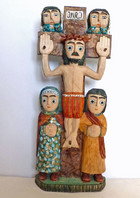
Anton Kaminski
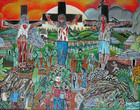
Jose Ignacio Fletes Cruz
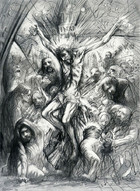
Peter Howson
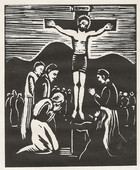
Helena Bochorakova-Dittrichova
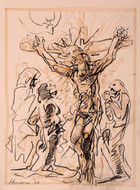
Peter Howson
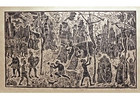
Milen Litchkov
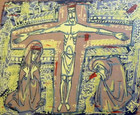
Sister Mary Corita Kent
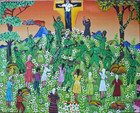
Jose Ignacio Fletes Cruz
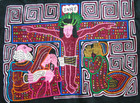
Unknown Kuna Artist
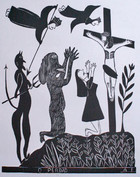
Francisco Amaro Borges
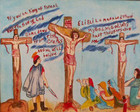
Myrtice West
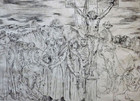
Unknown French Artist (C. Blanc?)
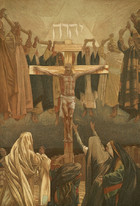
J.J. Tissot
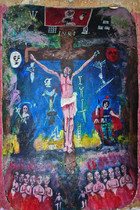
Unknown Mexican Artist
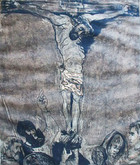
Andre Racz
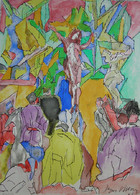
Jacques Villon
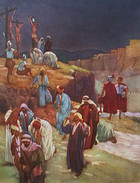
William Hole
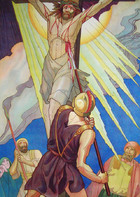
Jos Speybrouck
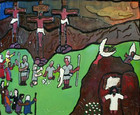
Carl Dixon

Myrtice West
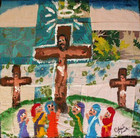
Chris Clark
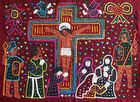
Unknown Kuna Artist
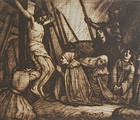
William Strang
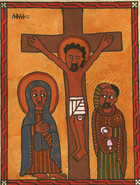
Unknown Ethiopian Artist
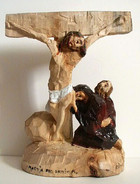
Roman Sledz
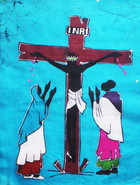
A. Mropa
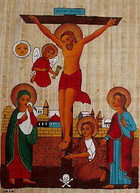
Unknown Egyptian Artist
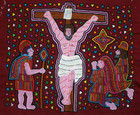
Unknown Kuna Artist
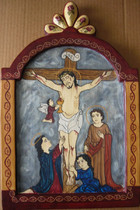
Catherine Robles-Shaw
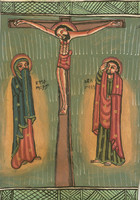
Unknown Ethiopian Artist
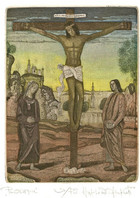
Nikolai Yanakiev
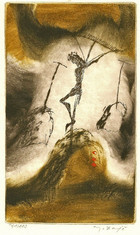
Jaroslav Dajc
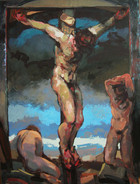
Edward Knippers
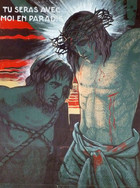
Charles Plessard
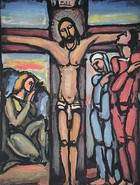
Georges Rouault
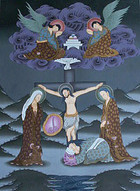
Unknown Nepalese Artist
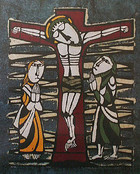
Sadao Watanabe
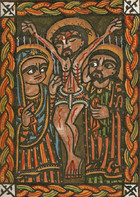
Unknown Ethiopian Artist
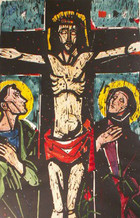
Vincent Hloznik
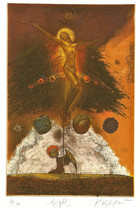
Peter Velikov
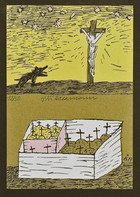
Jiri Salamoun
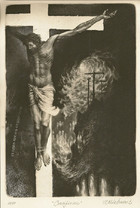
Ivan Miladinovic
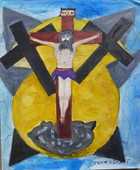
John G. Ernst
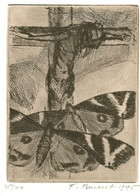
Frantisek Burant
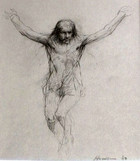
Peter Howson
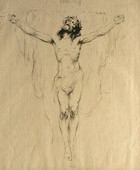
Arthur Heintzelman
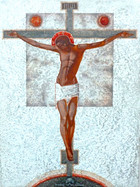
Ivanka Demchuk
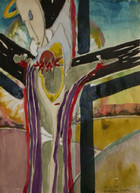
Barbara Tribe
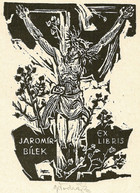
Jaroslav Vodrazka
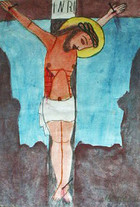
Marianna Wisnios
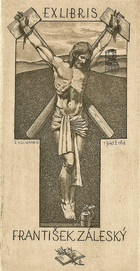
Stanislav Kulhanek
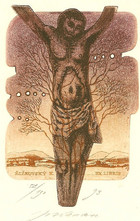
Jan Kavan
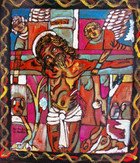
Rudolph Valentino Bostic
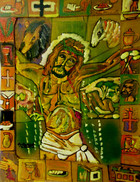
Rudolph Valentino Bostic
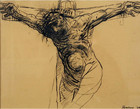
Peter Howson
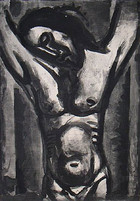
Georges Rouault

Paul Aizpiri
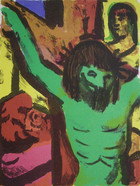
Pierre Ambrogiani
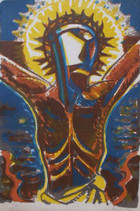
Unknown Artist
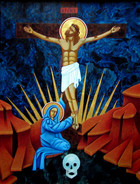
Jodi Simmons
